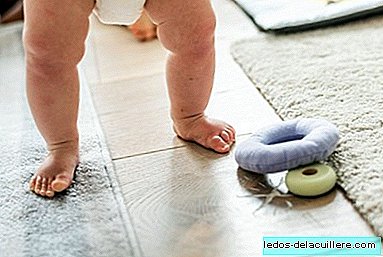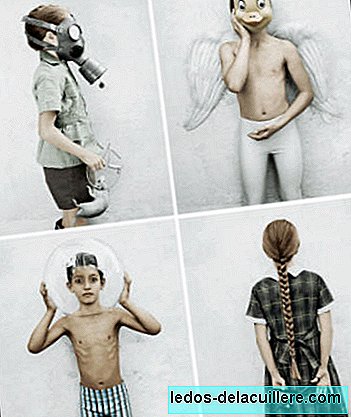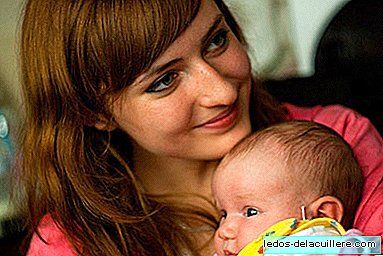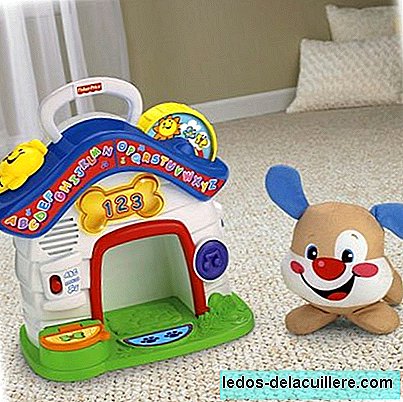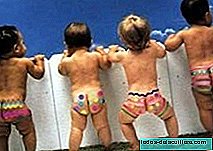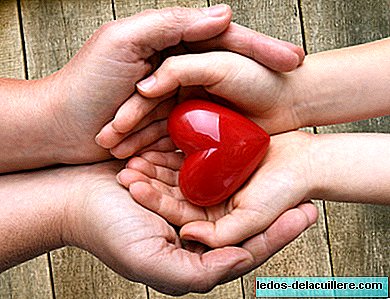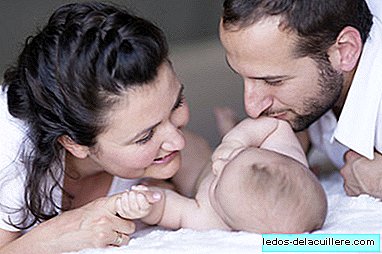Headaches in children are usually normal episodes that are often associated with other diseases that occur during childhood. According to the Spanish Association of Pediatrics, Up to 96% of children suffer from an episode of headache during their first 14 years of life.
Headaches are one of the leading causes of truancy, and although in most cases they are not serious, it's something that worries parents a lot, who wonder in anguish: Why does my son's head hurt?
Main causes of headaches in children
Dr. Ana Camacho, child neurologist at the Hospital 12 de Octubre in Madrid and a member of the Spanish Society of Pediatric Neurology explains that In most cases the causes are benign and they are due to migraines, tension headaches or infectious processes.
Migraines
Almost 75% of headaches in children they are caused by migraines, and from adolescence they occur more frequently in girls than in boys. Normally, the pain is located in the forehead, although sometimes it can only occur on one side of the head, and usually go accompanied by lack of appetite, nausea and vomiting.
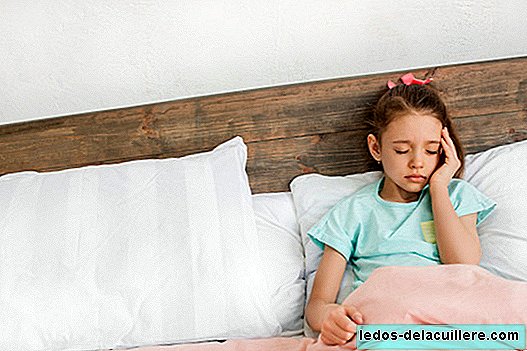
On some occasions, children suffering from migraines have parents or a close relative who also suffers them, although Dr. Camacho explains that this criterion does not always have to be met:
"There are families of migraines, but except in exceptional cases of migraines with special characteristics that are genetically determined, there is no common migraine gene. That is why we cannot establish risk probabilities with sufficient certainty "
"In the consultation we often see that some of the parents of a migraine child is too, but we cannot predict whether or not an adult will have children with migraines."
Migraine can last for several hours and be repeated more or less frequently, but usually improve with rest, darkness and sleep.
Tension headaches
This type of headache it occurs very often in school age and they are usually episodes of long evolution that are repeated regularly throughout the week.

Pain usually occurs in the afternoon. when the child returns from school, and is usually associated with fatigue or stress (during exam time or back to school, for example), so they improve with rest.
In addition to rest and analgesia when necessary, the Spanish Association of Pediatrics recommends intervene in the child's lifestyle, avoiding as much as possible the triggers and psychological problems that may hide behind tension headaches (family conflicts, bullying, depression, anxiety, academic pressure, sexual abuse ...)
"The stress factor identification It is only achieved with the medical history, so it is important that the child tells his parents what is happening or worrying him, and that a temporary relationship between the trigger and the appearance of the headache is actually seen "- points out Dr. Camacho.
Infectious processes
Likewise, headaches can be caused by an almost always benign inflammation derived from infectious processes, such as colds, otitis, sinusitis, dental diseases ...
In these cases, it is not serious and the pain will disappear when the infectious process remits or after the administration of analgesics.

When should we worry about a headache?
Dr. Ana Camacho recommends us to go urgently to our reference hospital if the headache has any of the following characteristics:
Headaches that progressively go further, both in intensity and duration
Headaches associated with alterations of neurological functions, such as loss of strength or vision, or impaired level of consciousness
Headaches associated with nausea or vomiting when the patient is not migrainous. Similarly, we must pay attention to headaches that are accompanied by stiff neck or / and fever when it is not associated with a systemic disease.
On the other hand, the headaches associated with trauma are normal and frequent, but if this pain is very intense or is accompanied by some other alarm signal such as confusion, blurred vision, nosebleeds or ears or vomiting, we should also go Quickly to the emergency room.
How to treat headaches in children?
As in adults, childhood headaches should be treated with rest in a dark place and analgesics If the pain is very intense or the pediatrician recommends it.
"We will give analgesics if the parents observe affectation in the general state of the child or the headache is very intense. If the child complains, but is not affected it is not necessary to administer medication, and we can try to distract him by changing activity, for example" - recommends the neurologist.
In any case, we can try to prevent or relieve the headache of children following the following recommendations:
Check the sight of the children to rule out that the headache is due to vision problems, especially if we detect that our child gets too close to the books to read.
Maintain a balanced diet, and in the case of migraines doctors recommend avoiding foods such as cheese, nuts, chocolate, bananas, preserves and sausages.
Avoid prolonged exposure to the sun, closed, cramped or excessively hot environments, very intense physical exercise, exposure to tobacco smoke, sudden changes in the rhythm of life, excessive noise ...
Likewise, it is essential to maintain healthy lifestyle habits that include regular physical exercise and restful sleep and according to the child's age.
IStock photos
Acknowledgments Dr. Ana Camacho, Spanish Society of Pediatric Neurology
In Babies and More When calling an ambulance if your child is sick, With the return to school, headaches increase in children, Failure to identify high abilities in time could cause the child emotional imbalances and somatization, The role of Pediatrician, key to detect cases of domestic violence against children, What are the symptoms of stress in children ?, What to do if I think my child is depressed?


